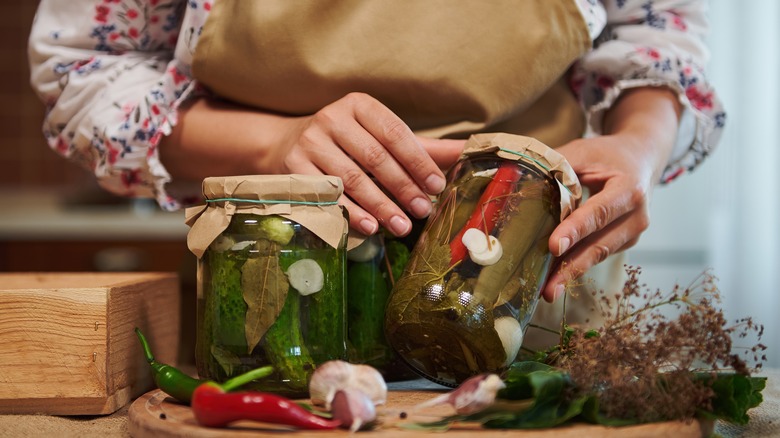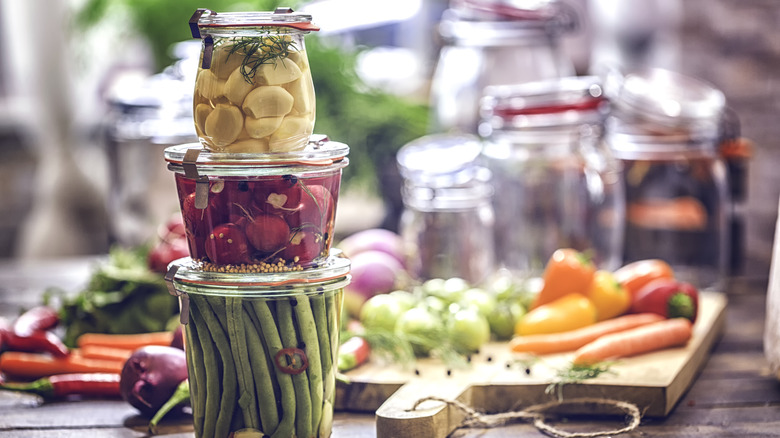Your Vinegar's Acidity Matters When It Comes To Canning
Vinegar has been a kitchen pantry staple for literally thousands of years. They were using it in Babylon in 5,000 BC as a preservative, and as an antiseptic by 2,000 BC. It's an essential ingredient in a lot of the food we eat and for a very good reason — the acidity. If you're canning vegetables or making pickles at home it's a crucial element.
When you do any pickling or canning it's important to check your vinegar's acidity. Both the USDA and the National Center for Home Food Preservation advise using vinegar with 5% acidity – anything less and you risk your food not being safe for consumption. Increasingly, some vinegar brands have an acidity of just 4%, which won't kill dangerous bacteria and molds. According to the National Center for Home Food Preservation, fermented and pickled foods must have "...a minimum, uniform level of acid throughout the mixed product to prevent the growth of botulinum bacteria."
When buying vinegar look for the acidity percentage and make sure it says 5%. If the front label doesn't say what acidity percentage it is, it may be with the ingredients list. A batch of pickles made with low-acidity vinegar is salvageable, but you have to act fast. If it's less than 24 hours after processing, you can stick the jars in the refrigerator for up to a month. Anything older than 24 hours unfortunately needs to be tossed.
Just how vital is vinegar in preventing food spoilage?
Turns out vinegar is pretty vital in preventing food spoilage. Canning and pickling recipes are something you shouldn't tinker with. A well-tested pickling recipe takes into account not just the flavor of the final product, but food safety, as well. Even some acidic foods like tomatoes need a boost of acid, either with lemon juice or citric acid, to ensure the final product is safe to eat.
Due to its acidic nature, vinegar is an antiseptic and an antimicrobial. If you read food labels you might find ingredients like lactic acid, acetic acid, and citric acid, all of which are naturally occurring acids the food industry uses to preserve things like barbecue sauce, jams, and jellies. If the acidity isn't as high as it needs to be, food spoilage can occur. Botulism isn't as common as it once was; there's an average of 110 cases in the U.S. a year, 25% of those being from food that's improperly prepared and stored. But it's dangerous enough — potentially deadly — that we still need to take vital preventative measures.
If you're going to be pickling or canning your summer produce, make sure that you're following a recipe from a reputable source such as the National Center for Home Food Preservation, as their recipes are endorsed by the USDA, and have been tested with the proper acidity levels and preservation processes. And remember to check the acidity of your vinegar!

